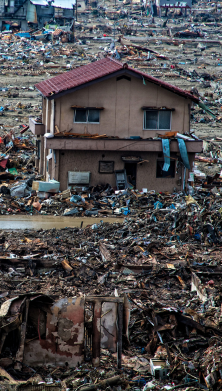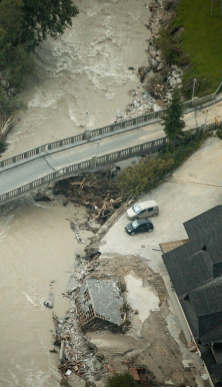
UCB is a multinational biopharmaceutical company headquartered in Brussels, Belgium.
The company focuses primarily on research and development activities specifically involving medications centered around epilepsy, Parkinson’s, Crohn’s diseases and rheumatoid arthritis. Its efforts are focused on treatments for severe diseases treated by specialists, particularly in the fields of central nervous system (CNS) disorders (including epilepsy), inflammatory disorders (including allergy) and oncology.
UCB has facilities in over 40 countries worldwide.
UCB Risk Manager, Eric Fumière, discusses his experience in getting business moving again.
What is manufactured at the UCB Farchim facility?
Eric Fumière: UCB’s new state-of-the-art facility at Farchim, Switzerland, manufactures the active pharma ingredient (API) for a globally marketed arthritis medicine. It is a reserve facility for a third-party provider and employs about 350 people.
What happened to cause the loss?
Eric Fumière: The explosion occurred at an electricity connection inside the building. The entire basement was destroyed. Fortunately, there was no loss of life or injuries to employees in the vicinity. However, there was significant physical damage. As to why the accident occurred, we are not certain. It is still under investigation.
How did UCB work with Allianz to resolve the loss?
Eric Fumière: This was the largest, most costly accident ever for UCB. This product represents €50m in monthly sales. From the first time we were allowed into the accident site, AGCS claims managers and Allianz Belgium representatives were there with us. They prearranged for clean-up and testing specialists to check and recalibrate the equipment. Their fast response saved us downtime had we been forced to contract with a crew separately.
How did the insurance claims settlement process work?
Eric Fumière: Allianz was flexible throughout. Knowing that electricity network experts are limited in Switzerland, they quickly contracted with and retained local parties who Swiss courts later would be comfortable working with: a brilliant strategy and a huge advantage for us. In the final analysis, we suffered severe property damage and we needed a fair and supportive partner. We were pleased with the settlement process and how Allianz took control in the critical first hours while making strategic decisions for well down the road, which only now are beginning to come into play at litigation. Although they were with us from the beginning, Allianz Belgium leveraged its property and casualty colleagues to step in, giving us tremendous peace of mind. I’m happy to say we continue as long-term partners today.
From a risk management and loss prevention perspective, what lessons have been learned from this accident?
Eric Fumière: We learned many lessons. For example, that the electricity network should be located outside of the building. It seems elementary but the fact that ours was located inside means the initial explosion caused heavy damage even before the fire. Had it occurred offsite, while it would have inconvenienced short-term production, it wouldn’t have been disastrous. Another lesson learned was that the room where the electricity network was located should open to the
outside. The only door in our room opened to the inside and debris blasted into the remainder of the building rather than towards the outside. Had an external door been available only the room would have been damaged.
We now have an external electricity network, situated well away from the building, as well as a secondary source of electricity in case we need to power one down for any reason.
The AGCS view
Raymond Hogendoorn, Property and Engineering Claims Specialist, AGCS, says: “Cooperation between market management, underwriting and claims was the
most important factor to effectively settling the UCB Farchim claim. The process was very successful thanks to the full transparency of both parties. We also were able to build a level of trust with their local people and Eric very quickly, as our claims team, led by Erik de Saegher of our Belgium office, visited them right after the incident.
“With crisis management claims like this,” he adds, “decisiveness is key. Decision makers must come together and start talking as soon as possible after the
event because fast claims settlement is all about good communication and relationship-building.”
He also stresses that for smoothest operations, claims work should start long before an event occurs. “It’s about preparing businesses for the worst,” he says. “Identifying potential weaknesses up front and putting procedures in place to protect them. And then regularly reviewing and revising the procedures if necessary. Preparedness is crucial to mitigating increasing losses so the business
can get back up and running as quickly as possible.”















